- بيت
- الصناعات
- الصناعات
- تقدم غلايات Fang Kuai عند الطلب, حلول بخارية معيارية للتطبيقات الصناعية والتجارية التي تتطلب عملية بخار للتدفئة, تعقيم, الترطيب, و اكثر.
- منتجات
- حالة عالمية
- معلومات عنا
- أخبار
- اتصال
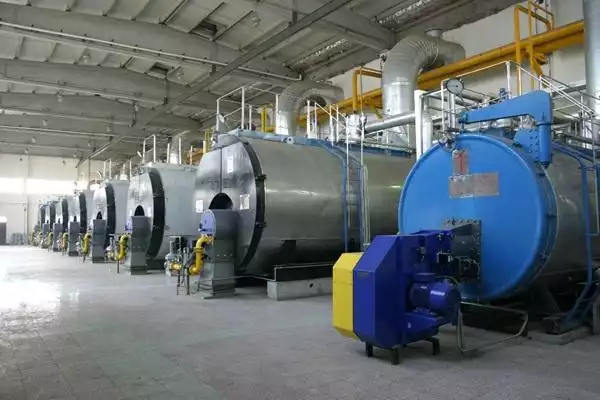
Fangkuai Boiler Introduces New Biomass Boilers >
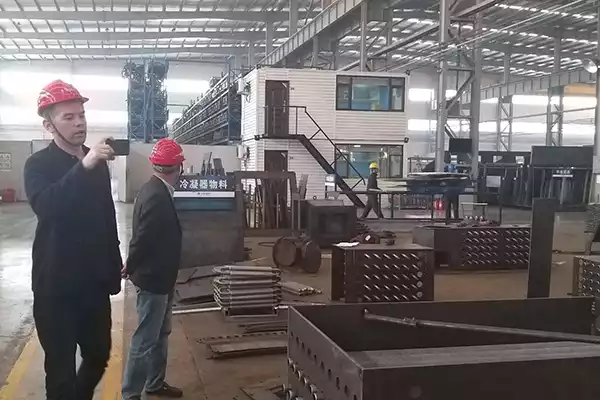
شركة فانغكواي للغلايات: Leading the Way in Energy-efficient Boiler Manufacturing >
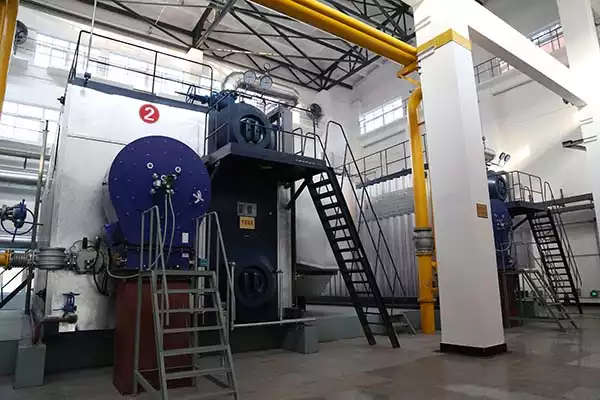
FangKuai Boiler Continues to Lead the Way in Energy-efficient Boiler Manufacturing >

غلايات فانغكواي: A Stable Development in the Overseas Market >
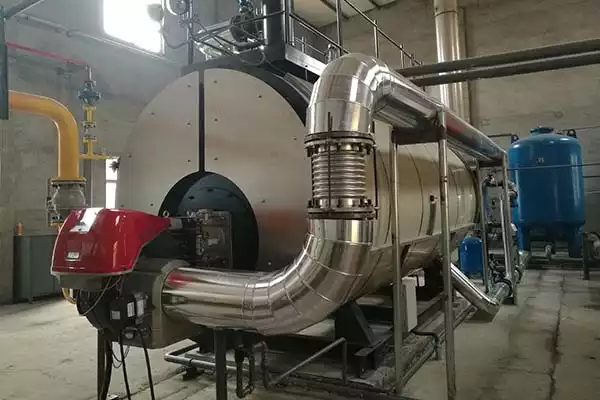
Boost Brewing Efficiency with Fangkuai Gas Boilers & Condensing Water Recovery >
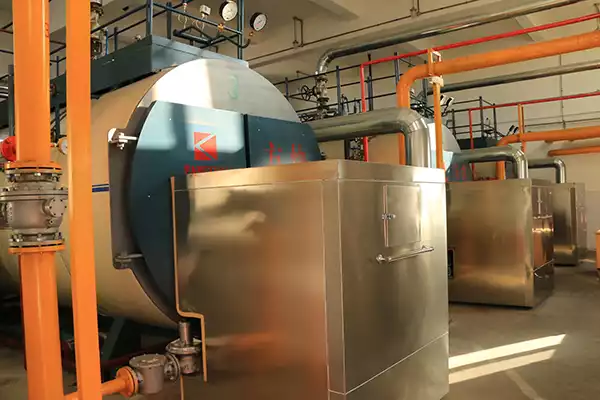
Empowering the Textile Industry in Bangladesh with Fangkuai Dual Fuel Boilers >
.jpg)
Discover the key factors affecting industrial electric steam boiler price, including capacity, ضغط, وكفاءة الطاقة. Get expert insights to make an informed purchase decision.

Learn the key factors that affect heater boiler replacement costs, including boiler type, مقاس, installation complexity, وكفاءة الطاقة. This guide helps you make an informed decision and plan your budget effectively for a cost-efficient replacement.

A fire tube steam boiler is a type of boiler in which hot gases pass from a fire through one or many more tubes running through a sealed container of water. The heat of the gases is transferred through the walls of the tubes by thermal conduction, heating the water and ultimately creating steam. This type of boiler is widely used in various industries for heating and power generation.

Installing a heating boiler is a significant investment that directly impacts your home's comfort, كفاءة الطاقة, and long-term savings. Whether you're upgrading an old system or installing a brand-new boiler, understanding the cost factors, عملية التثبيت, and ways to save money is crucial.
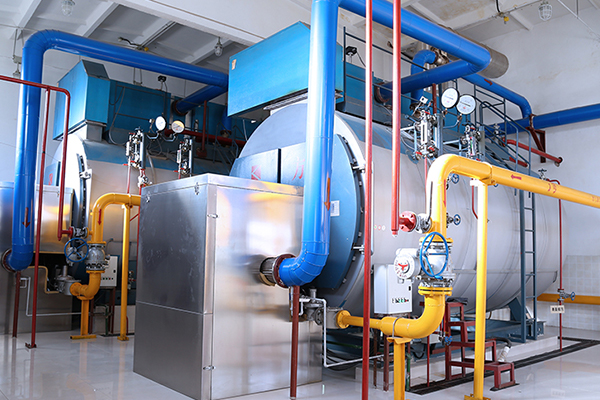
This guide provides a professional overview of steam boilers, covering their types, مبادئ العمل, and efficiency to help you make informed decisions.
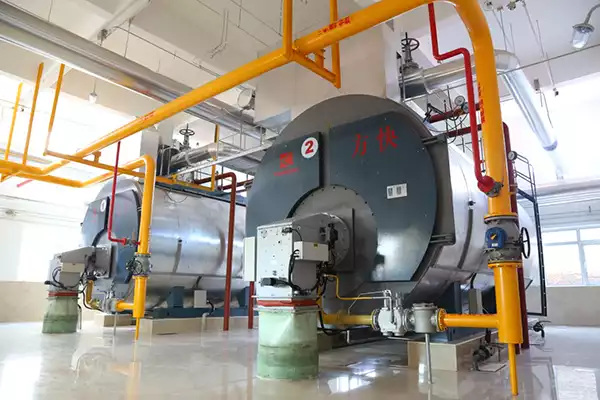
في الوقت الحالي, we have provided one-stop solutions for manufacturing, تثبيت, التكليف, and operation for 200+ industries.
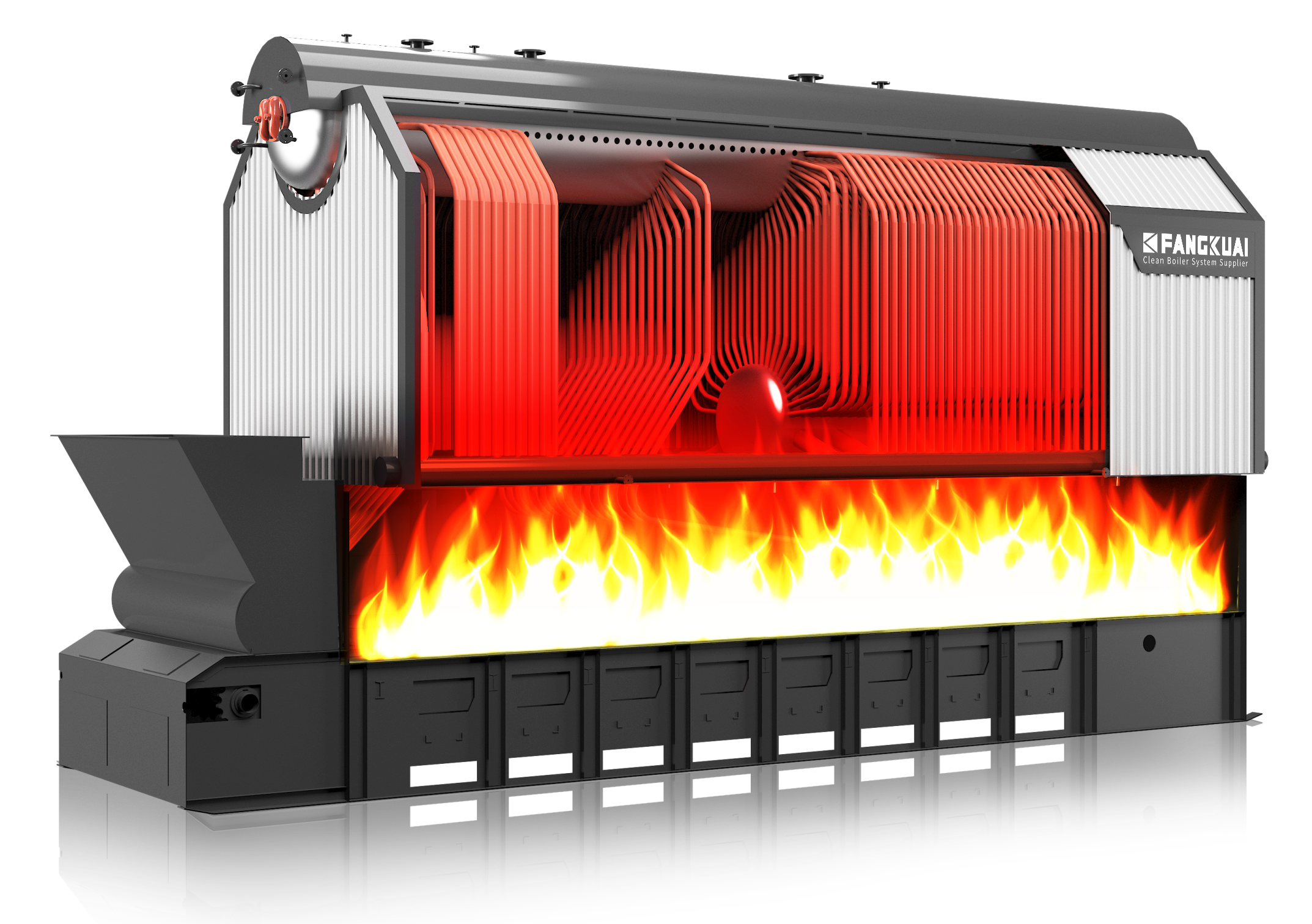
In today’s industrial and commercial sectors, reducing energy consumption and cutting down carbon emissions have become crucial goals for enhancing operational efficiency. مراجل الكتلة الحيوية, as an efficient and environmentally-friendly energy solution, are gaining increasing popularity among business owners and building managers.
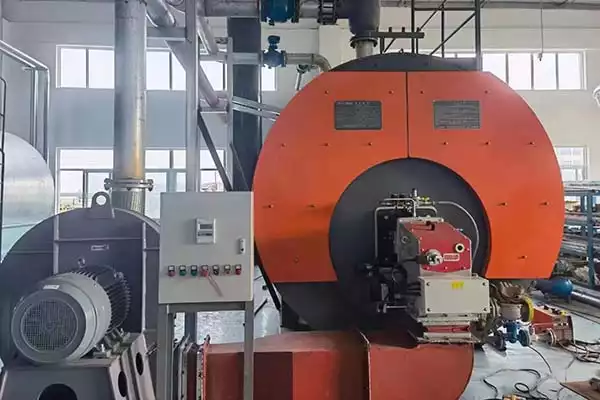
في السنوات الأخيرة, the biomass boiler types that are relatively mature and have more application performance are water-cooled vibrating grate furnaces, circulating fluidized beds and a small number of combined grate boilers. This paper analyzes and compares the characteristics of several boiler types and the influence of moisture, ash and impurities in the composition of biomass fuel on the selection of biomass boilers.
غلاية غاز : دليل الأسئلة الشائعة النهائي
Gas Boiler Troubleshooting: Get answers to common gas boiler issues in this helpful Q&A page. Discover solutions for problems like boiler not turning on, adjusting temperature, gas leaks, faulty ignition, و اكثر. Find expert guidance to keep your gas boiler running smoothly and efficiently.Step-by-Step Guide to Oil Boiler Installation
Choose a suitable location for the oil boiler installation, ensuring there is enough space for the boiler, oil tank, and necessary piping. The location should be easily accessible for maintenance, well-ventilated, and comply with local building codes.تركيب غلايات الغاز: دليل للتدفئة الفعالة
Interested in learning how to properly install a home gas boiler? We provide a comprehensive gas boiler installation guide, breaking down the installation process, precautions, and how to ensure safety. From professional installation to crucial maintenance, we've got your home heating covered.how to add water to a steam boiler?
Learn the essential steps and techniques for adding water to a steam boiler. Discover the significance, تدابير السلامة, طرق مختلفة, and maintenance tips for maintaining optimal water levels in your steam boiler system.7 خطوات لإخبارك بكيفية تنظيف غلاية بخار
اكتشف الخطوات والتقنيات الأساسية لرفع نظام الغلاية بشكل فعال. تعلم الأهمية, تدابير السلامة, طرق مختلفة, ونصائح الصيانة للحفاظ على أداء المرجل الأمثل.مستوى الماء في غلاية البخار مرتفع جدًا: الأسباب, الآثار والحلول
يمكن أن يكون مستوى المياه المرتفع في غلاية بخار مشكلة مقلقة لأنه قد يؤدي إلى ترحيل المياه في خطوط البخار, التأثير على كفاءة وسلامة نظام المرجل. هناك بعض الأسباب المحتملة لهذه المشكلة والخطوات التي يمكنك اتخاذها لمعالجتها:أسباب وحلول عدم عمل الغلايات البخارية
تتوقف الغلايات البخارية في بعض الأحيان عن العمل, الذي يجلب إزعاجًا كبيرًا للإنتاج. لذا, ما هو سبب عدم عمل المرجل البخاري? كيف يمكننا حل هذه المشكلة? التالي, دعونا نناقشها معًا.كيفية تجنب الحرارة غير المتكافئة في غلايات الغاز?
The uneven heat of the gas boiler refers to the phenomenon of uneven heat load in the same heating surface tube group.
الخامسiew مراجعات عملائنا
"مولد البخار من Fangkuai مثالي لأعمالي الصغيرة. إنه سهل الاستخدام للغاية ويتطلب الحد الأدنى من الصيانة. كما أنها موفرة للطاقة بشكل كبير, مما ساعدني على توفير المال على فواتير الطاقة الخاصة بي. خدمة العملاء في Fangkuai ممتازة أيضًا. إنهم متجاوبون للغاية ومستعدون دائمًا للمساعدة. أوصي بشدة بمولدات البخار من Fangkuai."
أحمد
مصر"غلاية الماء الساخن من Fangkuai مذهلة. يسخن بسرعة وكفاءة, ويبقى الماء ساخنًا لفترة طويلة. لم نواجه أي مشاكل معه أبدًا وقد حقق تحسنًا كبيرًا في عملياتنا اليومية. كانت عملية التثبيت سلسة للغاية وكانت خدمة العملاء ممتازة. أوصي بشدة بغلايات الماء الساخن من Fangkuai."
ساره
كندا"لقد اشتريت غلاية بخارية Fangkuai لمصنعي وهي تعمل بشكل لا تشوبه شائبة منذ شهور. جودة المواد وبناء المرجل مثير للإعجاب. كما أنها موفرة للطاقة بشكل كبير, مما ساعدنا على توفير المال على فواتير الطاقة لدينا. أوصي بشدة بمنتجات Fangkuai لأي شخص يحتاج إلى حلول تدفئة موثوقة وفعالة."
جون
الولايات المتحدة الأمريكية"مولدات البخار من Fangkuai ممتازة. إنها سهلة الاستخدام للغاية وتتطلب الحد الأدنى من الصيانة. خدمة العملاء في Fangkuai هي أيضًا استثنائية. إنهم متجاوبون للغاية ومستعدون دائمًا للمساعدة. كفاءة الطاقة لمولدات البخار ملحوظة أيضًا, مما ساعدني على توفير المال على فواتير الطاقة الخاصة بي. أوصي بشدة بمولدات البخار من Fangkuai."
ماريا
إسبانيا"غلاية الماء الساخن من Fangkuai مذهلة. يسخن بسرعة وكفاءة, ويبقى الماء ساخنًا لفترة طويلة. لم نواجه أي مشاكل معه أبدًا وقد حقق تحسنًا كبيرًا في عملياتنا اليومية. كانت عملية التثبيت سلسة للغاية وكانت خدمة العملاء ممتازة. أوصي بشدة بغلايات الماء الساخن من Fangkuai."
ساره
كندا"جعلت المعدات المساعدة لـ Fangkuai نظام الغلايات الخاص بي أفضل. جودة المعدات استثنائية والأسعار معقولة جدًا. ساعدت المعدات في تحسين كفاءة وأداء نظام الغلايات الخاص بي, مما أدى إلى توفير كبير في التكاليف. أوصي بشدة بمعدات Fangkuai المساعدة لأي شخص يحتاج إلى ملحقات غلاية عالية الجودة."
ماريك
المملكة المتحدة"أنا معجب جدًا بجودة غلاية الماء الساخن من Fangkuai. لقد تم بناؤه ليدوم وتجاوز توقعاتي. كانت عملية التثبيت سلسة للغاية وكانت خدمة العملاء ممتازة. غلاية الماء الساخن سهلة التشغيل والصيانة, وكفاءة الطاقة رائعة. أوصي بشدة بغلايات الماء الساخن من Fangkuai."
جاك
أستراليا"لقد اشتريت غلاية بخارية Fangkuai لمصنعي وهي تعمل بشكل لا تشوبه شائبة منذ شهور. جودة المواد وبناء المرجل مثير للإعجاب. كما أنها موفرة للطاقة بشكل كبير, مما ساعدنا على توفير المال على فواتير الطاقة لدينا. أوصي بشدة بمنتجات Fangkuai لأي شخص يحتاج إلى حلول تدفئة موثوقة وفعالة."
جون
الولايات المتحدة الأمريكية"الغلاية البخارية من Fangkuai مثالية لأعمال معالجة الطعام الخاصة بي. إنه يلبي جميع متطلباتنا وهو موثوق للغاية. جودة المواد وبناء المرجل استثنائية. كما أنها سهلة التشغيل والصيانة, مما ساعدنا على توفير الوقت والمال على الصيانة. أوصي بشدة بالغلايات البخارية من Fangkuai لأي شخص يحتاج إلى حلول تدفئة موثوقة."
جسون
البرازيل